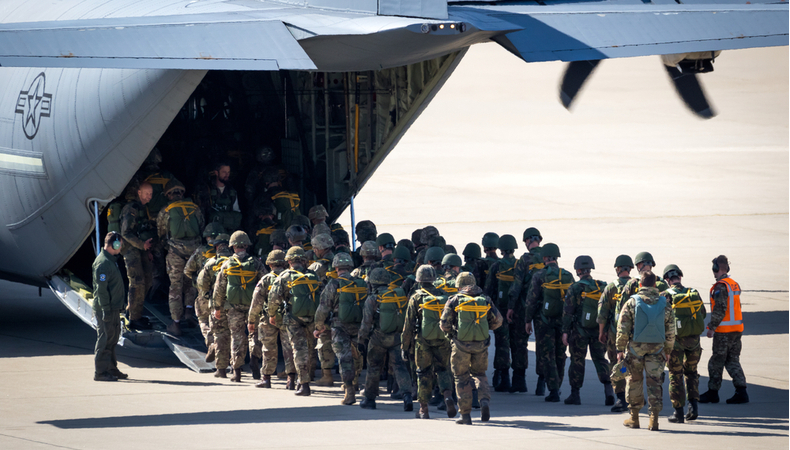The Pentagon is reviewing the deployment of its forces in the world and the reduction of resources in the Middle East


“The Monitor” website stated that “in addition to the reinforcement of airports in the Pacific and new deployments in South Korea, Pentagon officials have provided little clarity about what a global review means for the US military’s role in the approach of the president’s administration, Joe Biden to deter China.”
The site referred to the secret ‘Pentagon‘ document that will not be fully released, despite the implementation of a number of its recommendations, including President Biden’s abolition of the limits that were imposed under former President Donald Trump on American forces stationed in Germany.
Instead of the expected announcement, US officials are emphasizing a review of the situation as a guide to reforming the Pentagon’s internal decision-making process.
The vice president of policy at the Pentagon ,Mara Karlin, told reporters on November 30 that the features of the presence of US forces in the Middle East and Africa require ‘further analysis.’ ‘There’s more on this to come in the future,’ Carlin explained. ‘A lot of it involves very close consultations with our allies and partners around the world.’ Carlin’s comments indicate that new reforms to the resource request process may also apply to the next US Central Command chief.
No major changes are expected in the presence of US forces in the Middle East yet, but the continued reduction in the number of B-52 bombers and aircraft carrier deployments in the region is expected. It is also likely that the US Central Command will continue to distribute some of its forces to alternative bases in the region to avoid Iranian missile and drone attacks.
Despite the expected changes, the Biden administration has doubled down on its assurances to its allies in the Middle East amid concerns that Russia and China may fill Washington’s role in the region. ‘Our partners in the Middle East need to understand this,’ a US defense official said earlier this month. ‘The United States can do both. We can prioritize and prepare for the 21st century threat while strengthening our strategic partnerships in the Middle East.’
As for US forces in Iraq and Syria, and the main US bases in the Gulf, US officials say the forces are not leaving anytime soon, and that their presence does not depend on the outcome of the ongoing negotiations with Iran.




